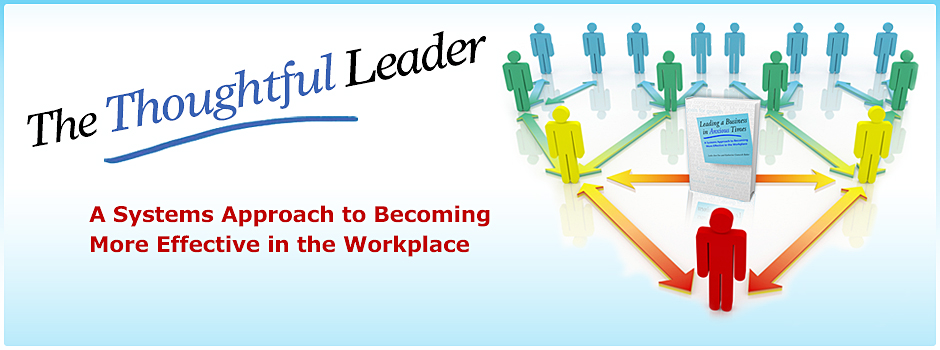Happy New Year to our readers, colleagues, friends, and families. What Leslie and I wish for the world (and for your company, your community, your family and ours) is that systems-based leadership ideas will take off in 2010. As we write in the introduction to Leading a Business in Anxious Times, the leadership principles we’ve introduced in the book “will enable you and your organization to successfully face the challenges that you encounter in an unknown but constantly changing future. They will give you the resilience, stability, flexibility, and vision to prepare yourself effectively for whatever lies ahead. Imagine if your company embraced responding to change as its strategic differentiator. What could it not accomplish?” (p. 22)
At this point all we know about 2010 (we don’t even know if it will end up as “twenty ten” or “two thousand ten”), is that it will surely involve enormous change and demands for adaptation from all of us. We will certainly be called upon to analyze, understand, and utilize new technologies, new products, and new ideas for defining and solving challenges at home, at work, and in the wider world. As you know from reading our book (and probably from your own life), most people experience change and the demand to adapt as stressful. When we are feeling anxious or stressed out, we can’t think as clearly, we make mistakes, we look for shortcuts, and our productivity and performance go down.
Faced with the inevitability of change in 2010, what can we do about it? We’ve said that functioning higher on the scale of differentiation (p.110) is the key to managing change and to providing effective leadership at all levels in a business. And raising your functioning has to start with self-awareness: “Understanding how you functioned in your family when you were growing up, what triggers your anxiety today, and how you react when you are anxious can inform your thinking in ways that enable you to better manage your anxiety in the present. Functioning at a higher level of differentiation as a member of an organization is always beneficial; you are less vulnerable to absorbing anxiety from others in the emotional system. Being a non-anxious presence in the system brings big benefits to the organization… As a way of leading, differentiation of self is about the value that a thoughtful, self-reflecting, emotionally independent individual brings to the workplace (p. 124).”
Please read on through Chapter 5 to learn more about how to do this. And write to us about how it works for you as you face the changes that 2010 will surely thrust upon you.
Katharine Gratwick Baker, PhD, Northampton, MA, December 31, 2009.

I heard that this was a course taught in Chicago? Is that true? I am a family business co-owner who has often very negative reactions to a highly differentiated brother of mine. I’m wondering if this course could help me resolve differences with him.
Thanks for your inquiry, Cathy. Yes, we periodically offer a course in Chicago. It is called The Challenge of Leading in Anxious Times and is based on our book, Leading a Business in Anxious Times. The class meets for two hours a month over a six month period.